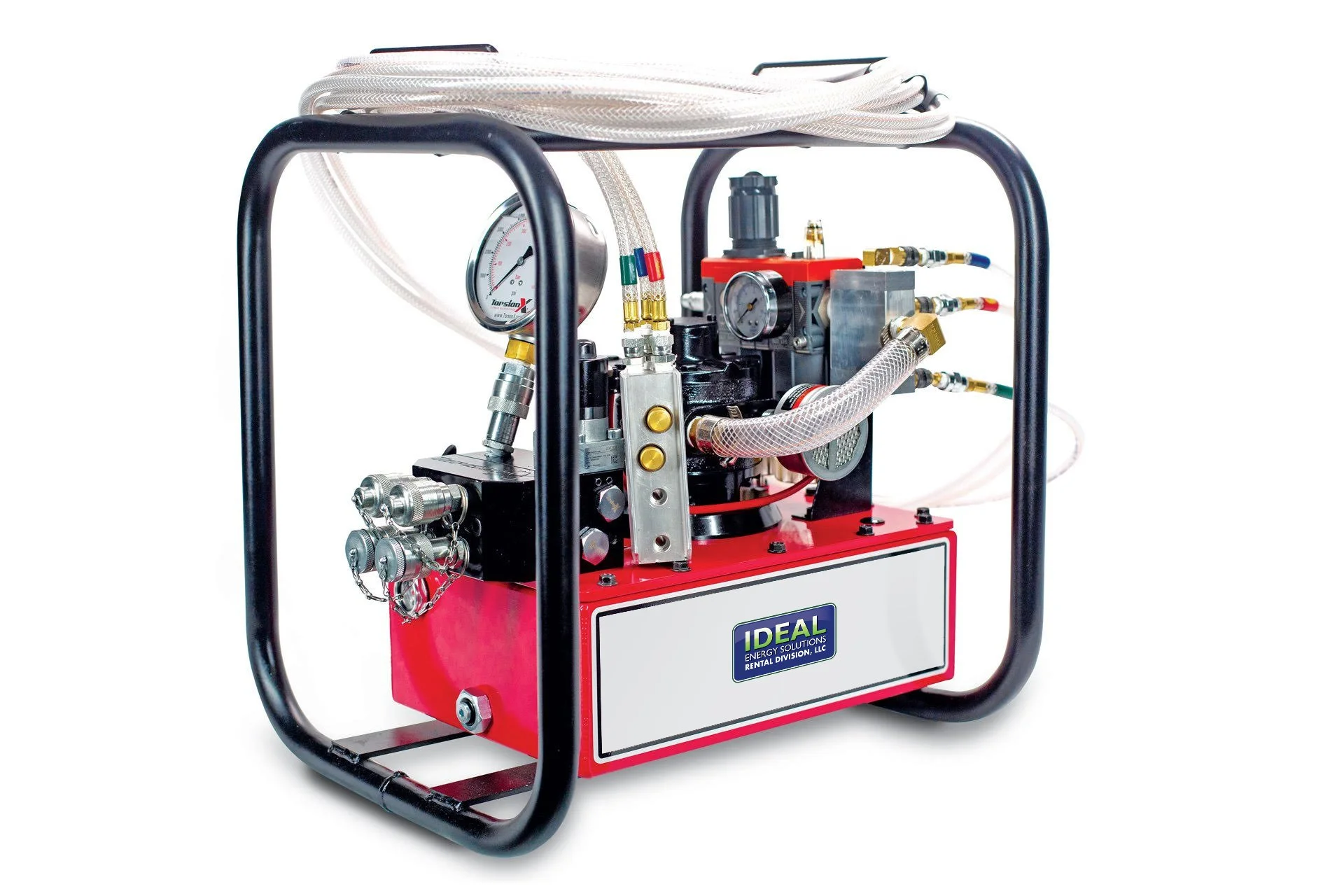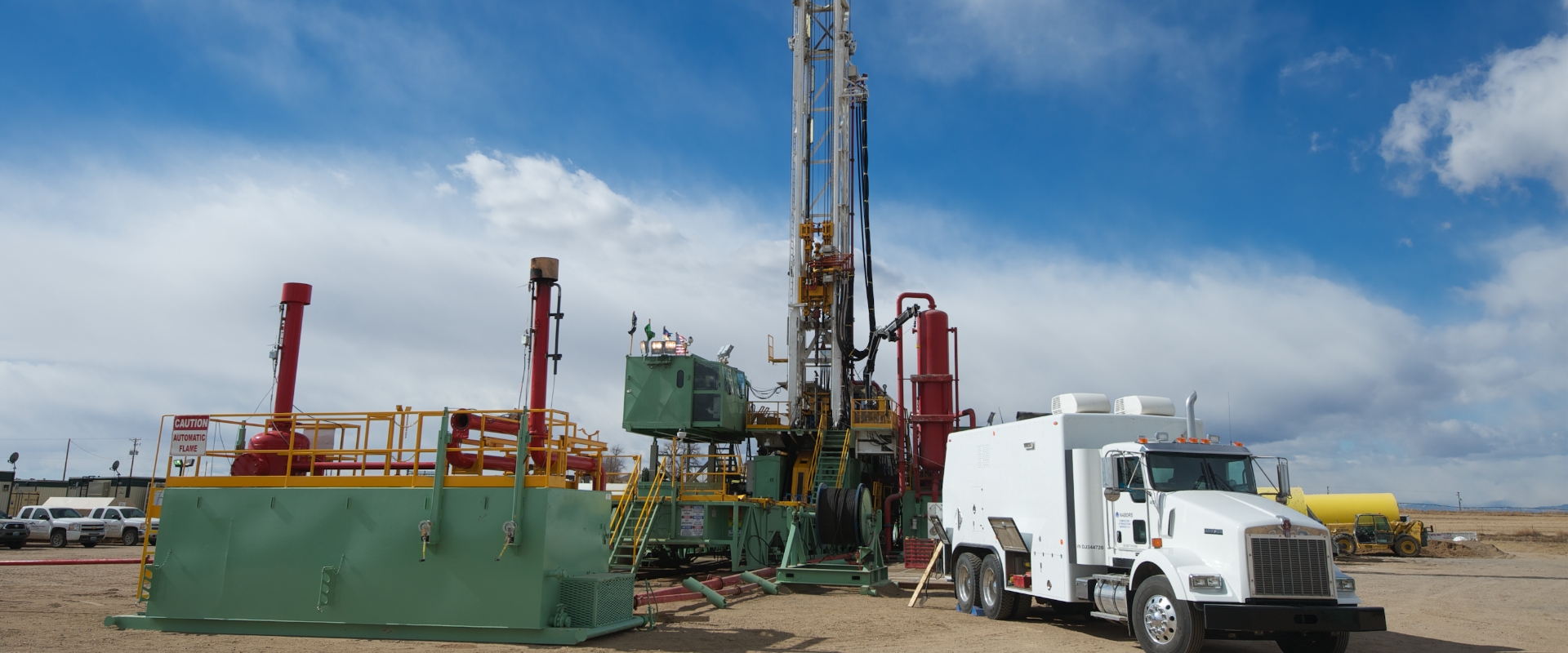Superior Rentals midland: trusted by operators
Wiki Article
A Comprehensive Overview to the Various Sorts Of Oil Field Equipment and Pipeline Equipment Available
The oil and gas sector counts greatly on specialized devices for effective removal and transportation. Various sorts of equipment, from drilling rigs to tank, play vital duties in this complicated process. Each piece of devices offers distinctive functions that contribute to total operational success. Comprehending these elements is important for any individual entailed in the market. As the sector advances, so also do the modern technologies that sustain it. What innovations are on the perspective?
Drilling Rigs: The Foundation of Oil Exploration
Drilling rigs offer as the important equipment in the domain of oil expedition, enabling firms to access hydrocarbon books hidden deep below the Earth's surface. These rigs can be found in different types, including land rigs, offshore rigs, and mobile devices, each developed to run in specific atmospheres. Equipped with sophisticated modern technology, piercing rigs can permeate geological developments with precision, ensuring reliable resource extraction. The architectural stability and operational capacities of these rigs are critical, as they should hold up against severe conditions and significant pressures. The choice of a drilling gear influences the total task cost and timeline, making it a vital factor to consider for oil companies seeking to optimize their exploration efforts and optimize performance in their procedures.Pumps: Necessary for Liquid Activity
In the oil removal process, the function of pumps is considerable, helping with the motion of fluids throughout various stages of production. Pumps are important for transferring petroleum, water, and other liquids from underground reservoirs to the surface area and after that through pipelines to refineries. They are available in numerous kinds, including centrifugal, positive variation, and completely submersible pumps, each serving certain purposes based upon the liquid qualities and functional needs. Centrifugal pumps are frequently used for their performance in high-flow applications, while favorable variation pumps succeed in handling viscous liquids. The choice of pump effects overall efficiency, operational safety, and maintenance expenses. Correct option and maintenance of pumps are vital for optimizing manufacturing and decreasing downtime in oil area operations.Valves: Managing Flow and Pressure

Valves play a crucial duty in managing the flow and pressure of liquids within oil areas and pipelines. Numerous kinds of valves offer distinctive applications, each designed to fulfill particular functions essential for efficient procedure - Superior rentals squeeze tools. Understanding the characteristics and usages of these shutoffs is necessary for enhancing system performance and safety and security
Sorts of Valves
Necessary parts in oil area operations, shutoffs play an important function in managing the flow and pressure of fluids within pipelines and equipment. Various sorts of shutoffs are utilized to meet the diverse needs of oil and gas production. Common types include gate shutoffs, which provide a straight-line circulation and marginal stress decline; world shutoffs, recognized for their strangling abilities; and sphere valves, acknowledged for their quick on/off control. Additionally, check valves prevent heartburn, while butterfly shutoffs use a light-weight option for controling flow. Each valve type is developed with certain products and setups to endure the harsh problems usually discovered in oil fields, guaranteeing reliability and performance in procedures. Comprehending these types is essential for reliable system management.Valve Applications and Features
While different kinds of valves serve distinct functions, their primary applications revolve around regulating circulation and pressure within oil and gas systems. Valves such as gate, globe, and sphere valves regulate liquid activity, guaranteeing peak efficiency and safety and security. Entrance shutoffs are commonly utilized for on/off control, giving minimal flow resistance. World valves, on the various other hand, deal specific flow law, making them suitable for strangling applications. Sphere valves are preferred for their fast operation and limited securing capacities. In addition, stress safety valve are critical for stopping system overpressure, guarding tools stability. Generally, the appropriate selection and application of shutoffs enhance functional performance, making certain the reliable transportation of Get More Info oil and gas with pipelines and processing centers.Compressors: Enhancing Gas Transport
Compressors play a vital duty in the effective transportation of all-natural gas, guaranteeing that it moves efficiently with pipes over cross countries. These devices enhance the pressure of gas, enabling it to get over rubbing and altitude adjustments within the pipeline system. Additionally, compressors help with the harmonizing of supply and need, fitting variations in intake and manufacturing prices. Different sorts of compressors are used in the sector, including centrifugal, reciprocating, and rotating screw compressors, each offering distinct advantages based upon the functional requirements. Regular maintenance of these compressors is crucial to optimize performance and lessen downtime, inevitably adding to a reputable gas transport network. Their critical feature emphasizes the value of compressors in the general oil and gas facilities.Storage Tanks: Safe and Efficient Fluid Monitoring
Reliable transportation of gas relies on numerous support group, one of which is the correct monitoring of tank. These containers play an essential duty in securely including liquids, making sure that operational efficiency is maintained while minimizing ecological dangers. Constructed from sturdy materials, they are designed to withstand high stress and destructive aspects. Properly sized and tactically situated, tank facilitate the smooth flow of gas and various other liquids, avoiding traffic jams in supply chains. Regular upkeep and tracking are imperative to detect leakages or structural concerns, advertising safety and conformity with governing standards. Eventually, the efficient management of storage space tanks is vital for the overall integrity and reliability of the oil and gas market's liquid handling systems.
Pipeline Systems: Facilities for Transport
Pipeline systems work as the backbone of the oil and gas sector, helping with the effective transportation of hydrocarbons over vast distances. These systems include numerous components, consisting of pipelines, shutoffs, pumps, and compressors, all meticulously created to assure seamless circulation. The products used in pipeline building and construction, often steel or high-density polyethylene, are chosen for sturdiness and resistance to corrosion. Pipeline networks can extend throughout land and water, attaching production websites to refineries and distribution. Additionally, advanced modern technology enables real-time surveillance of circulation prices and stress levels, improving functional performance. The strategic positioning of these pipes lessens ecological effect while making the most of source access, thus playing a necessary duty in conference power needs globally.Safety Equipment: Guaranteeing Employee and Environmental Defense
The operation of pipeline systems, while crucial for energy transportation, additionally offers considerable security challenges for workers and the setting. Security equipment plays a significant role in mitigating these risks. Personal protective tools (PPE) such as safety helmets, gloves, and non-slip shoes safeguards workers from physical hazards. Additionally, gas detection systems check for leaks, ensuring that harmful materials do not position a threat to employees or the surrounding ecological community. Emergency situation Extra resources closure systems are vital for quickly stopping operations throughout a dilemma, avoiding potential calamities. Spill control materials, consisting of absorbents and obstacles, are basic for decreasing environmental influence. On the whole, investing in comprehensive security tools is essential for maintaining functional stability and safeguarding both employees and the setting in the oil and gas market.
Regularly Asked Inquiries
Exactly how Do I Pick the Right Oil Field Equipment for My Job?
Picking the right oil field devices involves evaluating job specifications, budget plan restraints, and functional demands. Think about elements such as equipment reliability, compatibility with existing systems, and the distributor's online reputation to ensure peak performance and safety.What Are the Upkeep Needs for Oil Field Equipment?
Upkeep requirements for oil field equipment include regular evaluations, lubrication, and prompt fixings. Operators ought to also follow supplier standards, screen efficiency metrics, and guarantee compliance with safety laws to enhance long life and efficiency.
Just How Can I Ensure Conformity With Environmental Regulations?
To guarantee compliance with environmental regulations, business must carry out routine audits, apply ideal techniques, buy training, maintain appropriate documents, and stay updated on legislation (Superior Oilfield Rentals). Collaboration with ecological firms can additionally boost adherence to guidelinesWhat Is the Typical Life Expectancy of Pipeline Equipment?
The average lifespan of pipeline equipment generally ranges from 20 to half a century, relying on aspects such as material quality, ecological problems, my review here and maintenance methods. Routine assessments can substantially affect long life and functional performance.How Do I Safely Transport Oil Field Equipment to Remote Locations?
Transferring oil field devices to remote places requires careful planning, including route analysis, protecting permits, making use of proper vehicles, and making certain security protocols are adhered to. Proper training and interaction among staffs are crucial for successful transport.Report this wiki page